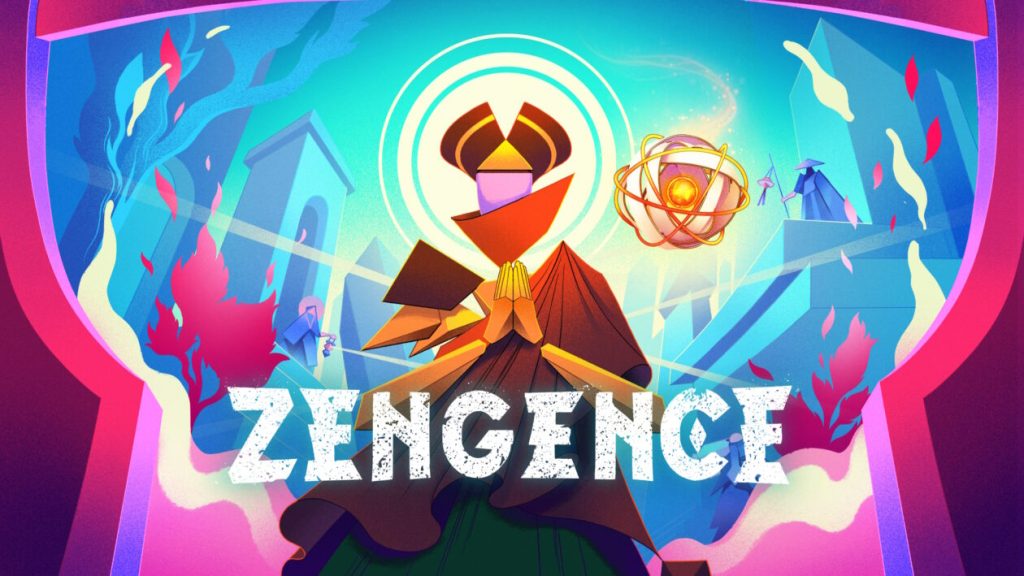Deepwell DTX’s Zengence is a virtual reality therapeutic app on the Meta Quest store that combines elements of a guided meditation and an action game. In the game, players use their VR headset’s microphone to reveal invisible Wraiths by conducting a rhythmic breathing exercise with an audible hum in time with the music. Zengence features a lo-fi soundtrack, colorful environments, and no failure states, with the challenge focused on earning as many points as possible rather than simple survival.
The central model behind Zengence is to engage players in a focused flow state, similar to the Tetris effect, where players realign their brain by focusing intently on the game. By triggering this cognitive state, the game aims to provide a distraction from stress, worry, and anxiety. Zengence puts players in a simulation of a stressful situation that they fully control, allowing for the internalization of coping skills that might be difficult to convey through traditional talk therapy.
Zengence is the first project from Deepwell DTX, founded by Ryan Douglas alongside other industry professionals. The game has a budget under $4 million and has received support from neuroscientists, inventors, and video game developers. Deepwell has a team of 50 employees working on Zengence and future projects, aiming to expand the game’s reach and mechanics to address other mental health issues beyond stress, such as anxiety and hypertension.
In its current state, Zengence is designed to deal with stress, but with future updates based on player data and feedback, the game’s approach may evolve to address a wider range of mental health issues. Douglas believes that the therapeutic value of games is often accidental, with titles like Call of Duty and Super Mario Bros. inadvertently providing benefits to players’ mental health. Deepwell aims to tap into the intrinsic therapeutic nature of fun to create games that have a positive impact on players’ well-being.
Zengence’s gameplay revolves around microtransactions of success, such as staying on beat, dodging attacks, and revealing enemies, which trigger dopamine reactions in the brain. The game is designed to keep players in a flow state where they lose track of time and effort, allowing them to learn and adapt up to 40 times faster than outside of the flow state. By engaging players in a simulated environment where they have agency and control, Zengence offers a unique approach to mental health treatment through immersive gameplay.
Douglas stresses that Zengence is not just a game but a lab for experimentation in therapeutic game design. The team is focused on breaking into the intrinsic therapeutic nature of fun and evolving the game until it becomes difficult to distinguish which elements are providing therapeutic benefits. Through ongoing updates and research, Deepwell aims to continue exploring the potential of video games as a tool for mental health treatment, leveraging the power of immersive experiences to promote well-being and positive mental health outcomes.















